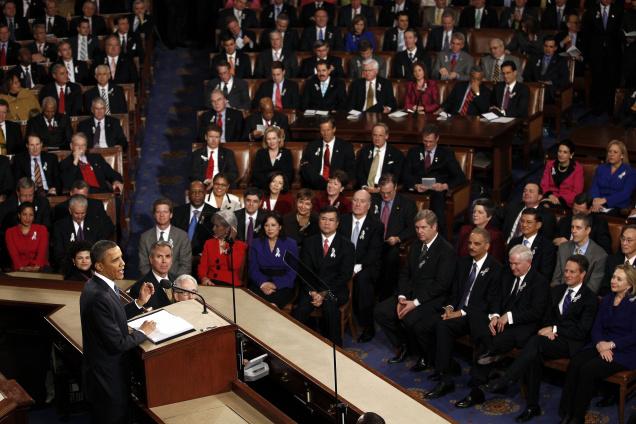My New R.I.M. Blackberry for Seniors
Harold doing some in-store testing of the new Blackberry Playbook for Seniors
It was chilly with a dusting of snow when I left home at 2:00 am yesterday to join the line a Future Shop to get my new Research in Motion Blackberry “Playbook for Seniors’. My trusty Tim Horton’s super mug in hand – a double, double, triple, triple with a couple of shots of Kahlua (and small bottle in my backpack) – helped to ward off the cold and calm the knot in the pit of my stomach. Would I be too late? Not to worry, by 9:30 am I was inside and the supplies looked to last.

Photo: Harold bikes our for his usual morning cuppa at Tim Horton’s. The two litre cup cuts down on refills.
My first surprise was the size. The new Seniors Edition was at least 32 X 55 cm (12 X 22 inches) but with a high definition screen and large print (even at 36-40 pt. you can still get a full page on the screen) it is certainly easy to read. You know, you can actually enlarge words and flip pages with just the flick of a finger? Amazing!
Now, a word about price! At $700 (2 gb storage) a crack, plus $200 for the tax and extended guarantee, it is well within the means of most seniors. Just don’t forget to factor in an average $400 per month for Apps, internet access, download fees, book purchases, etc. so you don’t over extend yourself (1). My bets – move over Apple – this new RIM Seniors Edition Playbook is about to take the market by storm.
The only real challenge I found was trying to fit the device in my jacket or briefcase and I am wondering whether getting through airport security is going to be a problem. Perhaps, in the future, RIM will consider a folding model.
Congratulations to Jim Balsille and Mike Lazaridis, you and your RIM Team from Waterloo have made Canada proud – another first for Canadian Technology that is on a level with the Canada Arm. From this Canadian Senior – two thumbs up.
Harold McNeill
Victoria, BC
(1) For BES (Blackberry Enterprise Server) there is connectivity from that BES to RIM’s NOC, and that’s an extra charge. This is done via the SRP (Service Routing Protocol). Each BES has a unique SRP, just like our handhelds have a unique PIN. BES has better guaranteed service versus a BIS plan. On a BES you get way more functionality than BIS and you get more security, etc. These are matters are near and dear to most seniors.
(My young friend Riyad at Future Shop, passed along these helpful tidbits)

Staff at both Future Shop and Staples had to catch a coffee on the run as business was so brisk.

IPad vs Blackberry: While IPad has a jump on the market, the Blackberry Seniors model is likely to become a very big hit with the boomers who are just now entering those mellow years. My guess is the larger Blackberry will outsell the IPad by a factor of two or three.
(528)
PAX Canadiana
PAX Canadiana: In the 20th Century the term PAX Americana came to indicate the pre-eminent military and economic position of the United States in relation to other nations, just as PAX Britannia was used the 19th Century (Wikipedia background). In the 21st Century, Canada will eclipse the United States and PAX Canadiana could become a reality. This article provides a satirical look at the alternate path we may choose to follow.
February 10, 2016 Update
1. Corporate Taxes
What got m thinking of this was the whole issue of “Corporate Tax Reductions.” With our Federal rates approaching 15%1, I checked the G20 major economies and found none below 25%. Then I checked on Ireland – poor little Ireland (not a G20 by the way) – they went bankrupt – just when they achieved a Corporate Tax rate of 12.5%, lowest in the EU and lower than the rest of the world, save for a few OPEC countries.
 This happened even after Google and dozens of big companies moved to Ireland to catch a piece of that generous corporate tax pie. As supply-side economists, trickle-down theorists3 and deregulators predicted, unemployment shrank to near zero and “things were booming”. Ireland was sitting at the top of the EU financial world. Then bang – the crash – banks folded and massive debt took the country down. The prescription for a sound financial future sounded great but the patient was dying. On their knees, they went to their EU partners for a bailout.
This happened even after Google and dozens of big companies moved to Ireland to catch a piece of that generous corporate tax pie. As supply-side economists, trickle-down theorists3 and deregulators predicted, unemployment shrank to near zero and “things were booming”. Ireland was sitting at the top of the EU financial world. Then bang – the crash – banks folded and massive debt took the country down. The prescription for a sound financial future sounded great but the patient was dying. On their knees, they went to their EU partners for a bailout.
Could this happen in Canada? With a projected national debt exceeding half a trillion, with further tax cuts promised and cash being handed out for everything but the kitchen sink (well that too if the Conservatives reconstitute their billion-dollar “home improvement program”) it could happen. We might very well be headed down the same path as Ireland and our good neighbour, the USA, whose move to supply-side economics and deregulation over the past several decades lead to the worst economic meltdown they have ever experienced. They are now printing money so fast many of their presses have overheated and, if the rumors are correct, may have broken down4.
Then, to my great relief, two newspaper articles appeared – one in the National Post, the other in the Globe and Mail. The first was a three-page spread in the Post entitled: “Global Warming – Bring it On” and, the second, in the Globe, “Republicans Urge New Pipelines.” Republicans? Republicans? It was no surprise to see the National Post calling ‘Global Warming’ a “good thing”, but US Senate Republicans calling for help from that great white, socialist enclave called Canada; that was when the loonie (our new penny) finally dropped.
Footnotes:
1 Between 2000 and 2006, the Liberals reduced the Corporate Tax Rate from 29% to 21%. From 2006 to 2011 the Conservatives further reduced to 16.5%. The Conservatives indicate a further reduction to 15% is needed to boost investment and reduce unemployment. Now the question, if a reduction from 29% to 15% was needed to boost investment and decrease unemployment, would not a further reduction from 15% to 0% be even better? We might wish to ask: “For whom?”
3 Referencing “trickle-down theory” humorist Will Rogers, said during the Great Depression (known as the “Dirty Thirties”): “The money was all appropriated for the top in hopes that it would trickle down to the needy.” (partially Wikipedia)
4 Unless the US Congress takes drastic steps they will be dead broke and shutting down parts of government when they reach their debt limit. A debt default by the USA will have worldwide implications.
(15344)
State of the Union
As with America, I expect many Canadians watched the State of the Union Address last night. While I disagree with many things America does (or does not do, as the case may be) I do admire the way the country can get passionate about an ideal.
 In Canada about the only time we ever see anything that approaches nationalist passion is at a sporting event and that occurs perhaps once or twice in a century. The 1972 Canada/Russia Summit Series was my first memory of the real passion about being a Canadian. Was that nearly 40 years ago? Following that I had to wait until the Olympics to again capture the feeling. It was wonderful. The Canada/US hockey Gold Medal Final was beyond my wildest dreams but, unfortuately, it will likely the the penultimate event of this century.
In Canada about the only time we ever see anything that approaches nationalist passion is at a sporting event and that occurs perhaps once or twice in a century. The 1972 Canada/Russia Summit Series was my first memory of the real passion about being a Canadian. Was that nearly 40 years ago? Following that I had to wait until the Olympics to again capture the feeling. It was wonderful. The Canada/US hockey Gold Medal Final was beyond my wildest dreams but, unfortuately, it will likely the the penultimate event of this century.
On the political stage, the State of the Union provides an opportunity for America, through their President, to talk about where the country has been and where they might go in the future. The speech last night demonstrated that even bitter political opponents can occasionally agree and can even stand together and applaud.
In Canada we have no such opportunity. We sleep our way through the interminable time between elections, then a precious few wake long enough to cast a ballot. Many, I suppose, might not even bother to look at the names on the ballot.
A rousing speech by either Prime Minister Stephen Harper or would be Prime Ministers Michael Ignatieff or Jack Layton, should be sufficient to put the staunchest insomniac out cold. Oh, to have at least one evening of the year where we could glue ourselves to the TV and hear words about the great history of our nation, a nation with hugh challenges to face but also a nation that is passionate about new ideas and the future.
The thrill that would tickle through my spine to watch the four sides of our house periodically stand in unison and give a rousing applause to a speech by a Prime Minister from whatever party he might represent. Alas, that is not likely to be.
Oh Canada, We Stand on Guard for Thee! Yes, always, because I know you love our Country as dearly as do I, but please, we need to show it more often and with more passion than once every 40 years for a hockey game. Afterall, whose left now that we have beat Russia and the USA?
Harold McNeill
Victoria, BC January 25, 2010
(362)
O’Canada … In All Thy Son’s Command
Controversial? Yes. Necessary? Indeed.
O’Canada, In all of us command.
(Feb 2018 1408)
March 2010: An item in the Conservative throne speech about changing two words in ‘O’Canada’, created a significant negative response even though the suggested change is long overdue. It seems doubtful, at this time, that the government will follow through. It’s equally likely that within the next decade the change will be made.
While we in the ‘older’ generation are often accused of being out of touch with the times, it seems that getting stuck in a rut is not just the preserve of the older generation. If the current debate about changing the word ‘son’ to something gender neutral is used as the benchmark, the younger generation can be as equally stubborn.
 Creating gender equality has been a long, slow process for many countries including Canada. Replacing the word ‘son’ in our Anthem is a small but symbolically important part of the process.
Creating gender equality has been a long, slow process for many countries including Canada. Replacing the word ‘son’ in our Anthem is a small but symbolically important part of the process.
Think back to some of the earlier challenges in our evolving democracy:
• It was well into the 1920s1 before women began to gain enfranchisement across Canada. Enfranchisement is considered a basic right in a democratic society yet women had to wait 50 years following confederation before that right began to creep across Canada, with all Provinces entering by 1949.
• As recently as 50 years ago, women in a few Canadian provinces were prohibited from entering beer parlours. Even in the more ‘progressive’ provinces, women often had to enter via a designated entrance with an escort. They were then seated in a segregated section.2
(1865)
A Predictable Accident?
Above: Queen of the North en route through the Inside Passage on the West Coast of Canada. Having traveled on dozens of Cruise ships of various size, as well as hundreds of trips on BC Ferries including an occasional trip on the Queen of the North through the inside passage, I am amazed there are not more accidents given the oceans of the world can produce extremely challenging situations. The loss of that classic ship, the Queen of the North is just one more example of how things can go catastrophically within the blink of an eye.
Note: It appears that on occasion when making a simple one-word change, a whole paragraph can be replicated. I have not yet determined why this takes place, so please bear with me when this happens. Harold
Of the special items on the Queen of the North were several large murals that decorated the walls along the passageways. Photos, depicting various historical sites along the route, were accompanied by a written history of each site and surrounding area. The murals and stories were prepared under the direction of a long-time friend and former BC Provincial Archeologist, Bjorn Simonson. My wife, Lynn McNeill assisted in the preparation. As this work was completed perhaps a decade before the sinking, I don’t know if they were still being displayed when the Queen of the North sank on that fateful day in 2006.
(Activity: May 1, 2017 – 2712)
Follow-up News Reports, June 2013
Karl Lilgert, the navigating officer on the ill-fated Queen of the North, leaves the court after being found guilty of Criminal Negligence Causing Death. His being sentenced to four years in a Federal Penitentiary very much surprised me (see comments near the end of this post relating to the essential elements of a Criminal Negligence charge). I have no doubt the constant stream of inflammatory media reports as well as the vicious presentation by the Crown, had a strong influence on the jury.
to four years in a Federal Penitentiary very much surprised me (see comments near the end of this post relating to the essential elements of a Criminal Negligence charge). I have no doubt the constant stream of inflammatory media reports as well as the vicious presentation by the Crown, had a strong influence on the jury.
During my thirty-year police career, experience taught me that convicting someone on a charge of Criminal Negligence Causing Death was a particularly onerous task. As discussed further on in this article, each element of that particular statute presents a very real challenge for the investigators and crown.
In particular, I have been involved in other cases where the “wanton and reckless” disregard for life was considerably more egregious than in the Lilgert case, yet his case ended with a conviction. In my opinion, it was a stretch to have found each of the elements of the charge were proven in his case. I would be very surprised if either the charge or the sentence, perhaps both, were not tossed out on appeal.
Harold
(3083)



